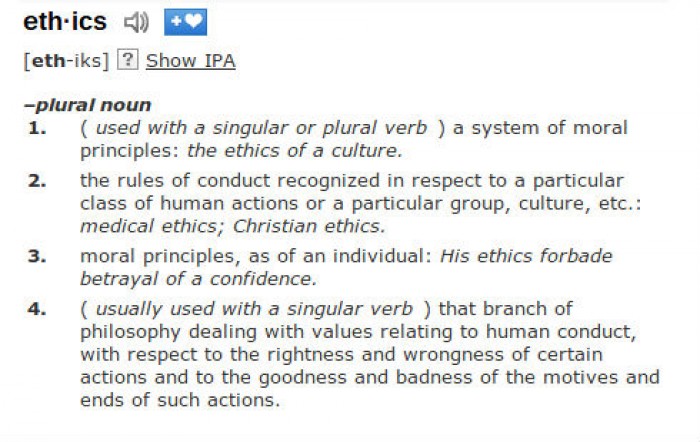
By now you’ve probably seen every blog post out there about Steve Jobs and his medical leave. It’s been a complicated situation since being CEO brings with it obligations that a private individual doesn’t have. On the other hand, Steve Jobs is a private man and deserves the chance to hopefully recover in peace. We could debate this all day, but Businessweek’s resident ethics expert has stepped into the fray with a fantastic and clearly outlined explanation of both sets of obligations (that of a private individual as well as that of the leader of a major corporation who answers to stockholders).
Dr. Weinstein’s best point, in my opinion, is #4:
4. Jobs’ medical condition, his treatment options, and his prognosis all fall within the rightful purview of stakeholders. Reality TV shows, entertainment blogs, and 24-hour cable news networks have all but obliterated the line between one’s professional and personal lives. The line was thin to begin with: Rock Hudson and Freddie Mercury were both robbed of dignity in their final days by a ruthless press corps that speculated (correctly, as it turned out) that each was dying of HIV/AIDS.
Celebrity alone should not carry with it public access to the intimate, intensely personal details of someone’s private life. But Steve Jobs’ celebrity fits into a different category from that of entertainment stars. His health can and does affect how well his company functions. Someone as hands-on as Jobs may not be able to fulfill his duties while wrestling with a life-threatening illness.
Jobs’ current leave of absence for medical reasons is his third one in seven years. He announced he had pancreatic cancer (for which he underwent surgery) in 2004, and in 2009 he received a liver transplant.
He’s absolutely right — there’s what we want to hear because news runs 24/7, trends on Twitter, and otherwise fuels our lives, and there’s what we SHOULD know because it actually impacts our lives in a specific way. It’s a skillful way to make that distinction and I think it cuts to the heart of the balance Apple has to walk between privacy and disclosure.
This is a fairly messy issue, though, and while Apple is a very high-profile example, they’re not the only company that’s faced it. And issues like this are the most fascinating in ethics; it’s not a matter of any side being specifically right or wrong, and all the parties involved have genuine claims to being right. The heart of the debate becomes a case of which trumps the other; privacy or right to investment transparency?
What’s your take on this situation? Should Steve Jobs have to disclose anything, or can he invoke his right to be a private citizen and disappear for a while? Join in the debate in the comments!

It’s an utterly non-messy issue. It’s the polar opposite of a messy issue. It is utter simplicity.
If you don’t like the level of visibility you’re getting from the Apple board, sell your stock. If the Apple board thinks that they don’t know enough about Mr. Jobs’ condition, they should remove him as CEO. (Yeah right.) Mr. Jobs has absolutely no obligation to tell anybody anything.
I wish him health and long life. I don’t know if I could work for the guy, but I think he does really great work.
Holy mackerel, I cannot believe this stupid argument continues! Like any other employee, like any other corporate officer, Steve Jobs merely has to tell that he is taking a leave of absence. If he knows when hhe will be back, he should disclose that; if it is open-ended, that should be disclosed. The details of why are nobody else’s business.
I simply cannot believe that anybody would argue otherwise. Everybody has the right to medical privacy. If people want to guess that Mr. Jobs is dying and will not return and decide that Apple will not perform as well, go ahead and sell your stock. It’s a risk, but buying the stock in the first place was a risk.
Sheesh!
Yes and no. The thing is, he’s not just a regular employee, he’s the CEO. But no one is asking him to release his medical records or report every time he sneezes. However, Apple has a history of being awfully cagey, and that means people get skeptical or concerned every time there’s big news.
I agree that he just needs to disclose he’s on a leave of absence, and I think his disclosure in this case was 100% appropriate. It’s still an interesting debate, especially since the attitude of “well, just sell your stock” ignores the large number of institutional owners (and mutual funds, etc). And Apple is a public company, which means agreeing to more scrutiny than, say, Facebook, who only have to answer to a handful of private investors.